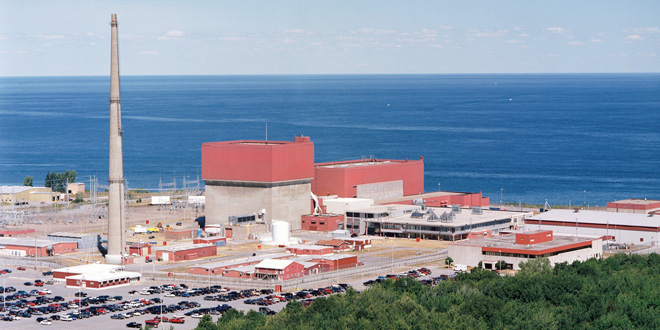By Peter Key
Exelon is encouraged by Energy Secretary Rick Perry’s order to study if government regulations and policies are forcing baseload power plants into early retirement and thinks courts will uphold the programs that provide zero-emission credits benefiting its nuclear power plants, executives said during the company’s first-quarter earnings call Wednesday.
The executives also said Exelon’s bids in PJM’s upcoming capacity auctions will reflect the economic needs of its plants, even if that leads to some of its plants not clearing the auction.
Exelon CEO Christopher Crane said Pepco Holdings Inc., which the company acquired a year ago, has only rate cases in D.C. left from its first planned cycle of rate filings under Exelon and has started the second cycle at its Maryland and Atlantic City Electric subsidiaries.
Crane also said Exelon is not concerned that the bankruptcy of Westinghouse, which is one of the suppliers of fuel for its nuclear plants, will impact its ability to get fuel for the plants.
“We continue to competitively bid our reactor fuel suppliers … and we move that around based off of pricing,” Crane said.
Exelon’s first-quarter results exceeded earnings and revenue estimates. Its adjusted operating earnings of 65 cents/share beat the Zacks consensus estimate of 61 cents but were down from 68 cents the year prior. Its net income was $1.07/share, up from 19 cents/share in 2016. The company’s revenue was $8.76 billion, beating the Zacks consensus estimate of $8.48 billion, and up 16.5% from $7.48 billion a year ago.
“We’re off to a great start in 2017,” Crane said.
Crane and Joseph Dominguez, Exelon’s executive vice president of governmental and regulatory affairs and public policy, made positive comments about Perry’s recent memo directing department staff to conduct a 60-day inquiry into “the extent to which continued regulatory burdens, as well as mandates and tax and subsidy policies, are responsible for forcing the premature retirement of baseload power plants.”
The memo has been interpreted by foes of coal-fired and nuclear power plants as an attempt to find reasons for the department to support both.
Exelon has the nation’s largest nuclear generation fleet and its plants have faced pricing pressure from cheap natural gas and the plunging costs of utility-scale solar arrays and wind farms.
“Energy Secretary Perry’s recent directive to look at the importance of preserving baseload generation is early but encouraging,” Crane said. “We appreciate the secretary’s focus to promote needed market reforms to compensate these assets.”
Exelon has argued that its nuclear plants need to be compensated for their ability to provide emissions-free power, and New York and Illinois have established zero-emissions credits to do that. The programs have been challenged by other power providers and some environmental groups, although other environmental groups have backed them.
Crane said a New York federal judge heard oral arguments March 29 on Exelon’s motion to dismiss a lawsuit challenging ZECs. “We made strong arguments at this hearing and believe the law is clearly on our side,” Crane said. (See Federal Suit Challenges NY Nuclear Subsidies.)
The judge has not said when he would rule on the motion, Crane said, and that if Exelon prevails, it expects its opponents to appeal the judge’s decision. If it doesn’t prevail, he said, it will proceed with the case.
In Illinois, two groups of plaintiffs have challenged the ZECs in federal court. The cases have been combined before one judge, who has delayed action on a motion for a preliminary injunction against the ZECs while he receives a full briefing on Exelon’s motion to dismiss the cases. (See IPPs File Challenge to Illinois Nuclear Subsidies.)
Crane said the briefing will be completed by May 15 and the judge is scheduled to let the parties know his intention concerning the cases on May 22.
Exelon began recognizing ZEC revenues in New York on April 1, Crane said. In Illinois, he said, it has filed tariffs to begin collecting the ZEC payments on June 1 but doesn’t expect the actual procurement process to conclude until fall.
The earnings call came the day after the conclusion of a two-day technical conference at which independent power producers asked FERC to take action to prevent the ZECs from undermining the NYISO and PJM markets. (See related story, NYISO See Carbon Adder as Way to Link ZECs to Markets.)
Crane said he expects clearing prices in the upcoming PJM capacity auction to “come down to bidding behavior.”
“You have seen us bid our assets in recent auctions to reflect the underlying economic needs of the individual plants, which in turn has led to some of our plants not clear[ing]. You should expect us to bid our assets in the same responsible fashion in this next upcoming auction.”
Exelon expects a ruling on Pepco’s D.C. rate case in July, CFO Jonathan Thayer said. It expects rulings in the Maryland and Atlantic City Electric cases in the fourth quarter of 2017 and the first quarter of 2018, respectively, Thayer said.




